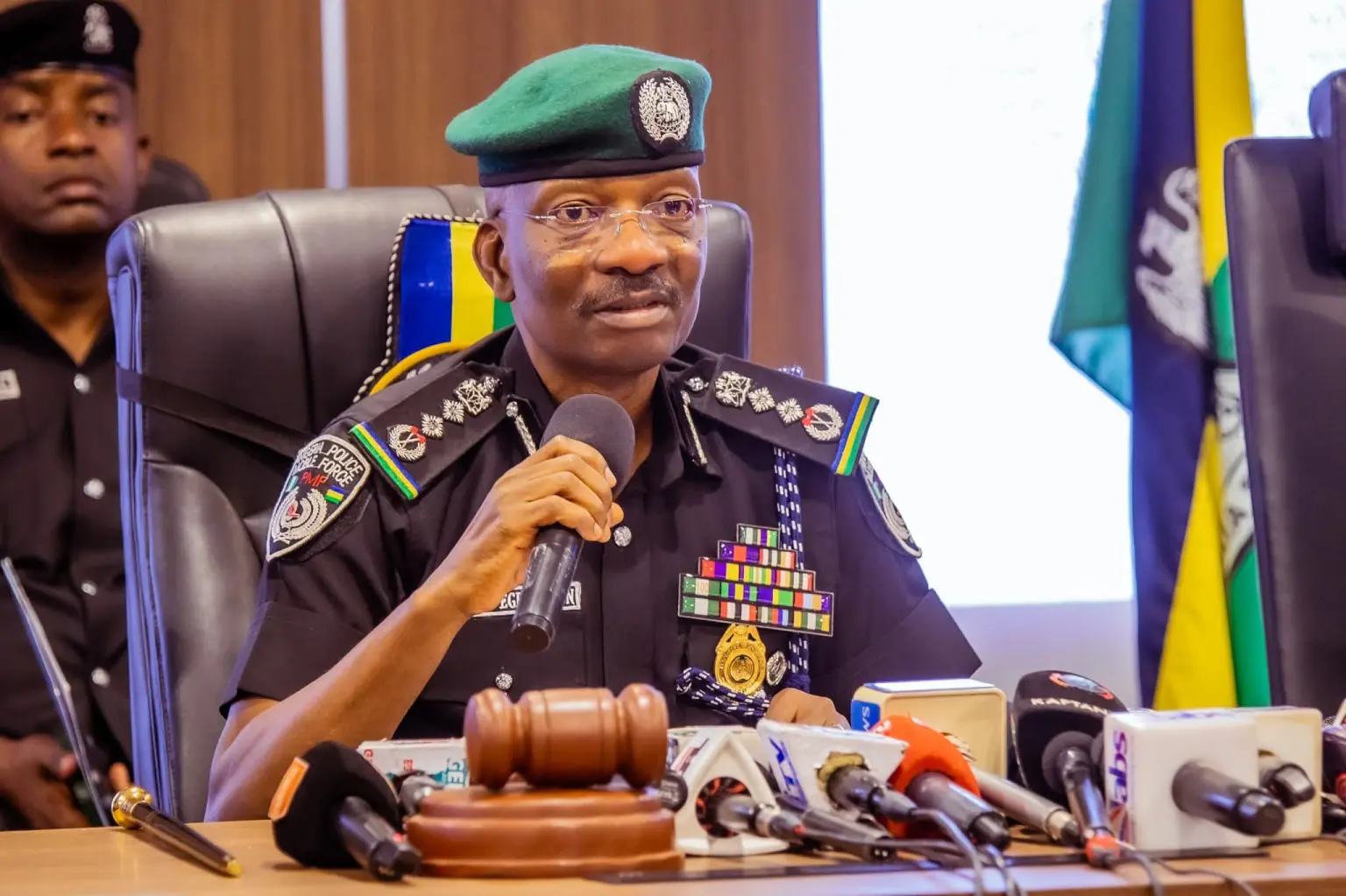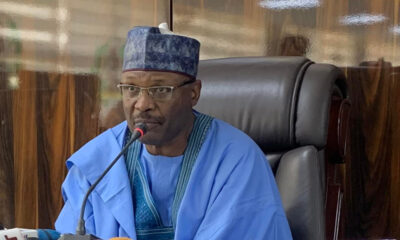NEWS
IGP Egbetokun Charges Commanders to Secure Nigeria’s Borders

The Inspector-General of Police (IGP), Kayode Egbetokun, has issued a powerful directive to the nation’s Border Patrol Commanders, urging them to redouble their efforts in securing Nigeria’s vast and complex frontiers. During a high-level conference at the Force Headquarters in Abuja, the IGP underscored the critical role of these commanders as the nation’s first line of defence against external threats, emphasizing that the time for a paradigm shift in security strategy is now.
In a candid address, IGP Egbetokun acknowledged the porous nature of Nigeria’s borders, a challenge that has become a major enabler for a wide range of transnational criminal activities. With over 1,400 illegal entry points crisscrossing the country’s 4,047km land border—a staggering figure that dwarfs the mere 84 approved border control posts—the task of maintaining security is daunting. The IGP’s charge comes amid heightened concerns over the unchecked flow of illicit goods, firearms, and criminal elements that exploit these vulnerabilities, posing a severe threat to national security and stability.
The IGP’s call to action is a direct response to the escalating scale and sophistication of cross-border crimes. From the smuggling of contraband goods, which cripples local industries, to the more nefarious trades in human trafficking, illegal arms, and narcotics, the nation’s borders have become a conduit for organized criminal networks. Recent security reports have linked the proliferation of small arms and light weapons (SALW) smuggled through these porous borders to the surge in banditry, kidnapping, and ethno-religious conflicts that have plagued various regions of the country. These crimes are not isolated incidents; they are part of a complex web of illicit activities that erode public trust and undermine the country’s economic and social fabric.
Egbetokun’s vision for a more secure Nigeria goes beyond traditional methods of policing. He candidly stated that the Nigeria Police Force cannot tackle 21st-century crimes with 20th-century tools, a sentiment that resonated strongly with the commanders in attendance. He urged them to embrace modern technology as a force multiplier, specifically mentioning the deployment of surveillance systems, drones, and biometric scanners. These advanced tools, he explained, are essential for real-time data analysis and intelligence-led policing, allowing commanders to proactively anticipate and neutralize threats rather than simply react to them.
A key pillar of the IGP’s strategy is strengthening inter-agency collaboration. The security of Nigeria’s borders is not a responsibility that rests on the shoulders of the Police Force alone. Effective border security requires seamless cooperation with sister agencies such as the Nigeria Immigration Service (NIS) and the Nigeria Customs Service (NCS), as well as a strategic partnership with the military and international organizations like INTERPOL. By fostering a culture of shared intelligence and joint operations, the IGP aims to create a more integrated and formidable security apparatus capable of dismantling sophisticated criminal networks that operate across national boundaries.
Beyond the emphasis on strategy and technology, the IGP’s message was also a pledge of support to the men and women on the front lines. He assured the commanders that the welfare of officers remains a top priority under his leadership. This human element is crucial, as the challenges faced by border patrol officers—who often work in remote, high-risk environments with limited resources—are immense. A commitment to improving their working conditions, providing adequate equipment, and ensuring their well-being is not just a matter of morale but a fundamental requirement for building a professional and effective police force that can fulfill its mandate to serve and protect the nation.
In his closing remarks, the IGP called on the commanders to lead by example, maintaining the highest levels of professionalism and accountability. This directive is part of his broader vision for a complete overhaul of the Nigeria Police Force, which includes merit-based promotions and specialized training. By empowering commanders with the tools and support they need, while holding them accountable for their performance, Egbetokun hopes to usher in a new era of security where Nigeria’s borders are not zones of vulnerability, but symbols of national strength and a deterrent to those who seek to undermine its peace and prosperity.


